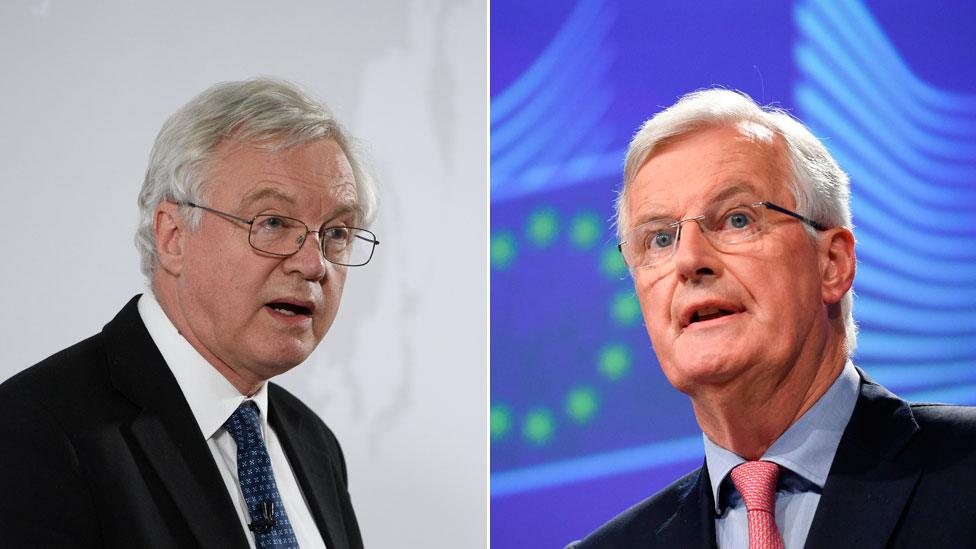Michel Barnier and Davis Davis talk Brexit 'backstop'
- Published

David Davis (left) met his EU opposite number Michel Barnier for more Brexit talks
The UK's David Davis and his EU opposite number have discussed the thorny issue of a post-Brexit "backstop" plan for the Northern Ireland border.
Mr Davis met Michel Barnier in Brussels for what the UK side described as a "stock-take" of progress made so far.
The EU has set out several objections to the UK's proposals, saying they would lead to a "hard border" in Northern Ireland.
It has also raised fraud concerns.
The UK published its last week, after a reported tussle over the wording between Mr Davis and Prime Minister Theresa May.
The aim of the backstop is to avoid border checks if the UK and the EU have not finalised a new trade relationship by December 2020, when the post-Brexit transition period is due to end.
The government's suggestion to avoid a physical border is that the UK temporarily aligns with the EU's customs union.
But last week Mr Barnier raised questions about how this would work, and now, in a series of published by the European Commission, the EU has criticised the proposal.
The UK's so-called "temporary customs partnership" would involve a "piecemeal application" of EU rules, and poses "serious risks of fraud", they say.
The EU documents also claim the UK plans would lead to a hard border between Northern Ireland and the Republic because they do not cover regulatory checks.
And on the UK's insistence that the arrangement should be time-limited, the EU questions whether this can be a proper backstop, and says it would be a "complex and unprecedented arrangement" for a short duration.
The EU's own backstop proposals - already rejected by the UK government - would be a "timely and workable solution", the commission claims.
The UK says its plan, which would only apply in "specific and narrow circumstances" delivers on a commitment made in December to avoid a hard border in Northern Ireland.